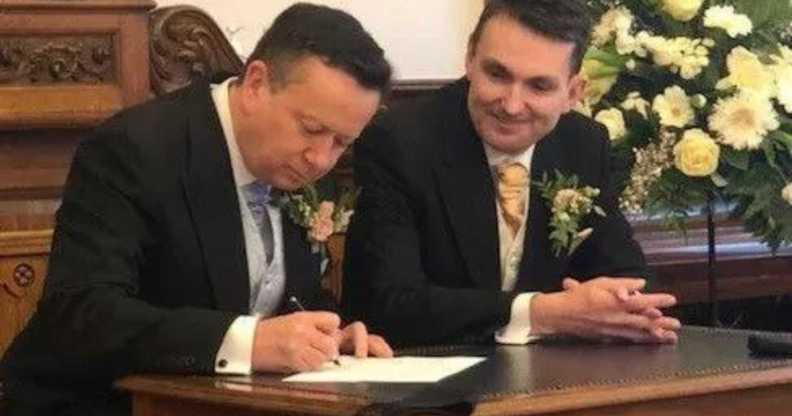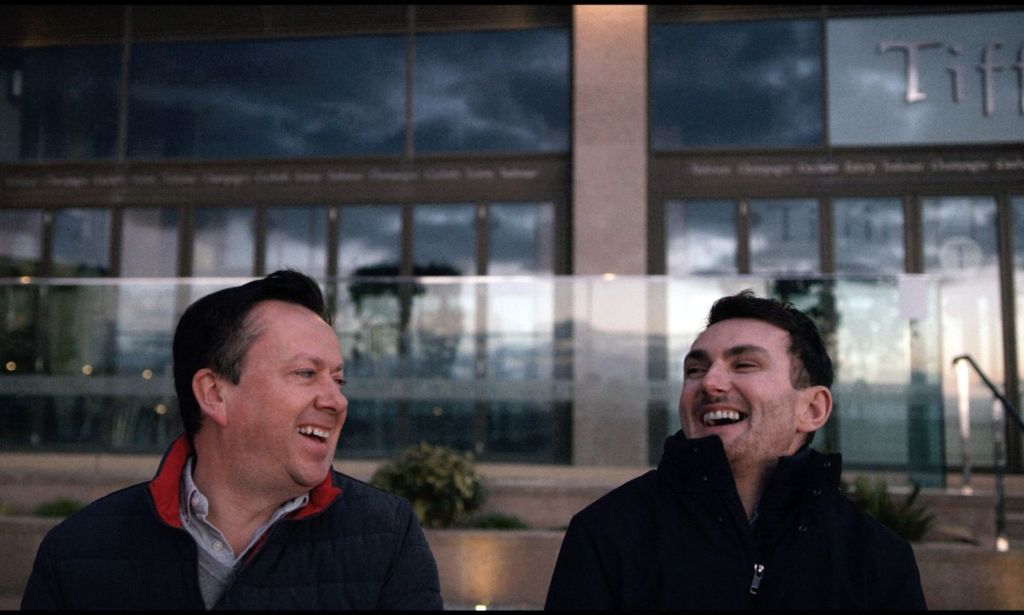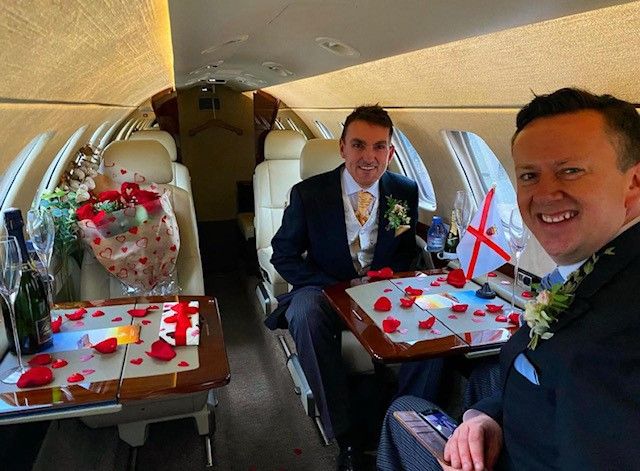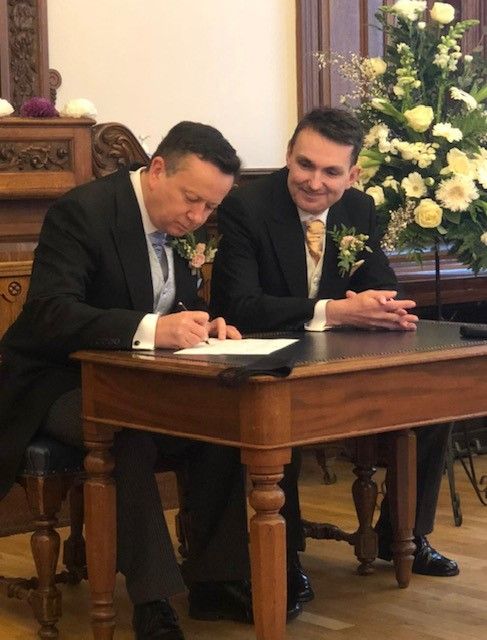My husband wanted assisted dying, but was denied. It’s only right people should have the option

Paul and Alain on their wedding day. (Supplied)
In September 2019, Alain du Chemin was diagnosed with a brain tumour.
At the time, he was living with his partner of eight years, Paul Gazzard. The pair had met on Grindr in 2011 – Paul was such a novice to the app that he couldn’t get his profile picture the right way up, and Alain sent him a cheeky message saying he had neck ache from trying to look at his upside-down face.
“For some bizarre reason I thought it was hilarious, and we just got chatting, met up, and then the rest is history. Very quickly I moved in with him,” Paul recalls.
Their life together was a happy one, but after months of suffering with headaches and disorientation, Alain was told he had a tumour, and that it was terminal.

He was a pragmatic person, Paul says, and immediately started researching his options.
“As he was reading more and more about what the end game might be, he discovered a lot of things – that people with brain tumours, towards the end, may not have all their faculties, can’t speak properly, can’t do a lot for themselves, become really confused, and so on. And he decided at that point that wasn’t really something he wanted to go through.
“That’s when he started looking into the whole assisted dying process and what it entails.”
Assisted dying describes the act of a terminally ill person being prescribed drugs, at their request, that end their life. A UK parliamentary briefing uses the term to cover instances where the patient self-administers the drugs, and where healthcare professionals administer them on request.
By that time, Alain was living back in Jersey, where he was from originally. The problem was that assisted dying was illegal there, as is the case in most European countries.
One of the few places where assisted dying is possible is Switzerland. Many people from across the world flock to the country so they can die on their own terms.

It took a while for Paul to realise just how serious Alain was about dying in Switzerland.
“He started saying, ‘I want it to be a celebration, I’d like to have certain close friends go with me, we’ll have a great party before I go off’. It was quite a lot to take in.
“Previously I had no view on assisted dying at all. I mean, thinking about it, why would you unless you or someone you loved were in that situation?
“You could tell he was absolutely adamant this was what he wanted to do… I think what I struggled most with was timing, really. When do you know now is the right time to go?”
‘Laws must change to a more humane model’
In order to undergo assisted dying, you must be considered competent to make that decision at the time of death. That presents specific challenges for people with terminal illnesses like brain tumours – for Alain, it meant he would have to die when he was still relatively healthy.
“He was fully supported by me, close friends, his family – we knew the sort of person he was and if he had something in his head, it was going to happen.”
While Alain explored his options, he and Paul worked on making the most of their time together. On Valentine’s Day 2021, they got married with around 20 guests in attendance.

Shortly afterwards, Alain’s condition started to deteriorate rapidly.
“At that time, I think he was feeling things were changing quite a bit, and the planning really had to be kicked up a bit,” says Paul.
“We have a friend who’s a pilot and he was able to get a private plane to take us to Switzerland, which was pretty much one of the only ways during that time [at the height of the COVID-19 pandemic] that we were going to be able to get there.”
The cost of hiring a private plane was going to be tens of thousands of pounds – and it caused “an enormous amount of stress”.
In the face of all those pressures, they ran out of time. Alain reached the point where he would no longer be considered competent enough to choose to undergo assisted dying.
On 1 May, 2021, Alain passed away in a hospice after a period of rapid deterioration.
Alain never had the chance to go through assisted dying – but Paul says he might have if the law was more humane.

That’s why Paul is now a campaigner for better assisted dying laws. He’s working with Dignity in Dying, a campaign group that believes everybody should have the right to a good death.
YouGov polling shows there’s broad support in the UK for a change in the law. Three out of four people believe terminally ill adults should be allowed to choose when their lives draw to a close.
“It’s about choice,” Paul says.
“I think it’s only right people should have the option available to them.”

